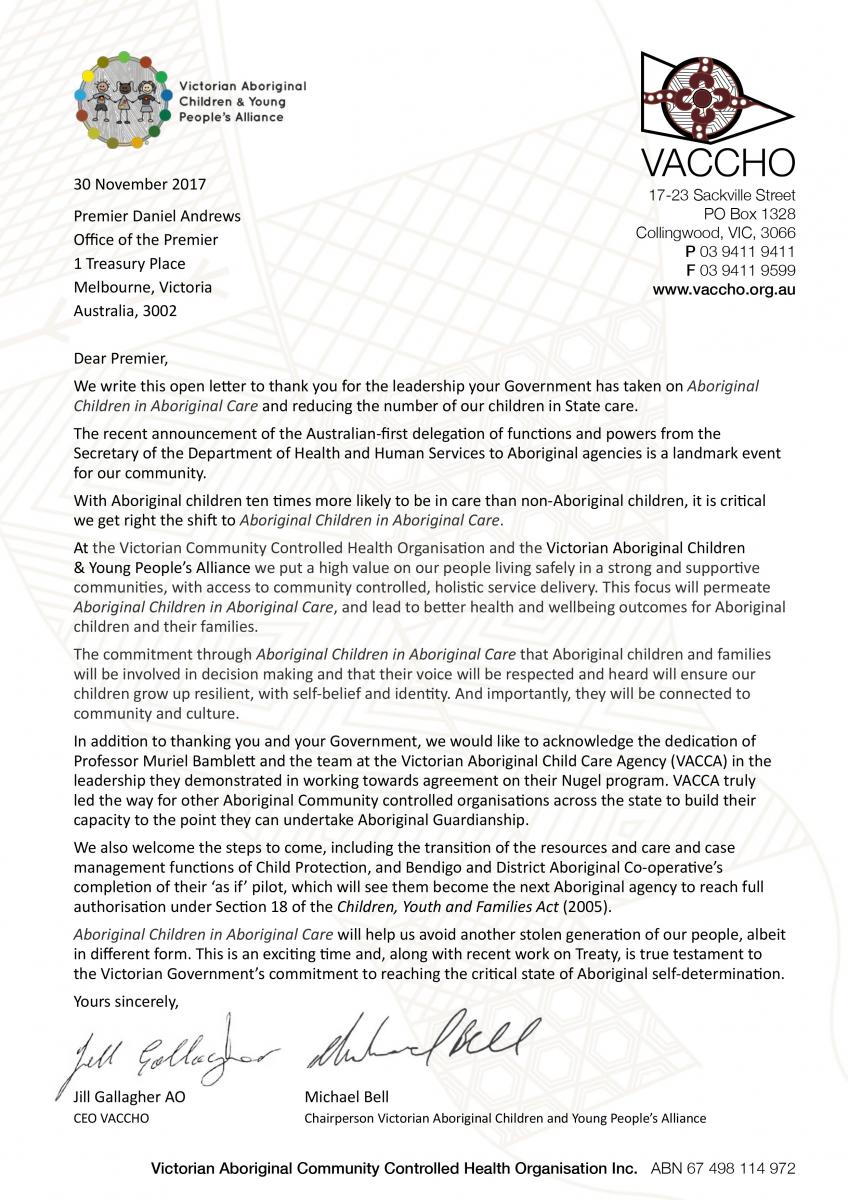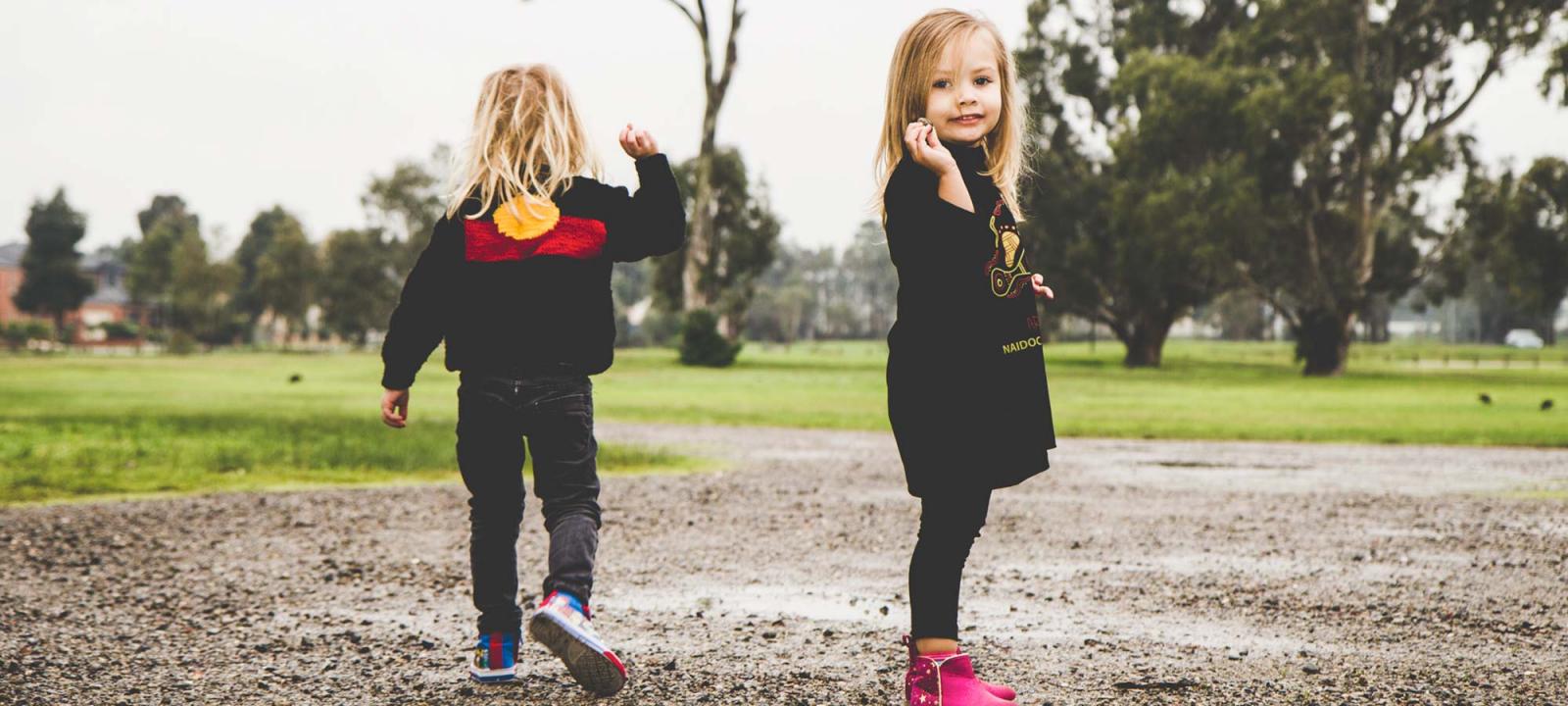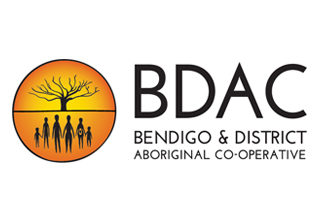Bringing Them Home (1997), Family Matters Report (2017) and the Australian first delegation of functions and powers from the Victorian Secretary of the Department of Health and Human Services to Victorian Aboriginal Agencies.
The ABC 7.30 Report, reflects on findings from the Bringing Them Home Report (1997) and the 2017 Family Matters Report and asks has anything changed before introducing a Victorian Government Reform, authorisation under Section 18 of the Children, Youth and Families Act 2005, the Australian first delegation of functions and powers from the Victorian Secretary of the Department of Health and Human Services to Victorian Aboriginal Agencies and the perspective of Sophie and Merinda Dryden who participated in the trial with VACCA supporting reunification with their Mum.
The significance of this event is reflected in an open letter to the Premier Daniel Andrews from the Victorian Aboriginal Children and Young People’s Alliance and the Victorian Aboriginal Community Controlled Health Organisation Inc followed by a description of the Nugel program at VACCA and the Section 18 Rural Pilot being undertaken by the Bendigo and District Aboriginal Co-operative. Finally, the evaluation of the 2-year pilot Aboriginal Guardianship is provided.
“Our children will know who they are and where they belong. They will take pride in their cultural identity and will grow up strong and resilient” (VACCA CEO Muriel Bamblett)
Open Letter to the Victorian Premier Daniel Andrews



That devastation cannot be addressed unless the whole community listens with an open heart and mind to the stories of what has happened in the past and, having listened and understood, commits itself to reconciliation.

Authorisation under Section 18 of the Children, Youth and Families Act 2005: The VACCA Nugel Program
Currently when an Aboriginal child is on a protection order, the Department of Health and Human Services makes plans and decisions for the child.
DHHS has transferred these powers for some Aboriginal children to VACCA and Nugel will accept responsibility for decision making and case planning for these children and young people. This means that DHHS will no longer be involved. Aboriginal organisations making decisions with Aboriginal families can do things differently.
What will be different in the way VACCA does business?
- Nugel will start by bringing family together
- Nugel will listen to your story
- Nugel will use family relationships to strengthen identity, culture and build resilience
- Nugel will be led by families in relation to how they would like to spend time together
- Cultural connection helps children grow up strong, culture starts with family.
Safety of children and young people – it is our priority
- Nugel will provide support to families to be safe and stay together
- Nugel will advocate for safe reunification for families who are not together
- If children cannot be at home, we will involve parents and family in planning and decision making for the future.
- This is a new and different way to work together with Aboriginal children, young people and their families for better outcomes.
Our commitment to families, carers, children and young people
VACCA’s knowledge of Aboriginal families and community will be part of
Nugel casework.


"Aboriginal Children are 10 times more likely to be in the care of the State."
"Aboriginal children in care could triple in 20 years."
www.familymatters.org.au

Section 18 Rural Pilot Program
BDAC’s involvement in the Section 18 Rural Pilot Program aimed at improving outcomes for vulnerable Aboriginal children is another step along the road to self-determination...
For Raylene Harradine, the concept was a no-brainer.
The Department of Health and Human Services was looking for a regional Aboriginal community-controlled health organisation willing to take on more responsibility in the child welfare arena.
As CEO of the Bendigo and District Aboriginal Co-operative, Ms Harradine saw it as an opportunity to introduce positive changes, to ensure cultural sensitivities were respected, and to give Aboriginal communities a say in the future of some of their most vulnerable members.
“The mainstream child protection system has often failed Indigenous families, and this was evident from hearings held as part of the Taskforce 1000 investigation into Aboriginal children in out-of-home care”
“In many instances, this stems from a lack of cultural understanding and the failure to recognise that people are often doing the very best they can with the limited resources around them.
“Sitting on the T1000 panel in Loddon and hearing some of the stories of systemic deficiencies, I was determined that we should and would take on the Section 18 Rural Pilot Program to offer at-risk children and families a holistic cultural approach to their safety, healing and connection.”
Ms Harradine put her hand up on behalf of BDAC and the department approved a 12-month trial under Section 18 of the Children, Youth and Families Act. It started in July 2016.
This effectively means BDAC now has more involvement in the decision making, planning, and case management of children and parents, specifically those who are subject to Family Preservation or Reunification orders made by the Children’s Court.
Up to 15 local families can be involved at any one time. BDAC Section 18 Project Manager Rachel O’Dowd said she was confident it offered better outcomes by promoting cultural consistency and being more inclusive of families.
She said the difference could be something as simple as having an Aboriginal community member in the room with a vulnerable family during welfare meetings, which encouraged trust.
Or ensuring children and parents remained on country, rather than being unsettled by having to travel hundreds of kilometres away from home to attend crucial discussions about their future.
Or linking Aboriginal families with other culturally appropriate services offered by BDAC or external agencies, that could help them throughout their journey.
“In countries like Canada and New Zealand, Aboriginal organisations have for many years been allowed to work with vulnerable children on court orders,” (Ms O’Dowd)
“This allows a larger Aboriginal voice to be heard on a bigger platform. It is Aboriginal people talking about Aboriginal people and that promotes more buy-in about cultural awareness.
”Taking into account the Stolen Generation and the impact of white settlement, it tries to ensure Aboriginal parents don’t feel disenfranchised even further.”
Section 18 of the Act that endorses the pilot program came into effect in 2005, yet this is just the second such trial of its kind in Victoria and the first outside of metropolitan Melbourne.
It only applies to Family Preservation Orders (where at-risk children remain at home and strategies are put in place to avoid removal) and Family Reunification Orders (where out-of-home care is provided while the family addresses the issues that led to protective concerns).
Families must agree to be part of the program; the Principal Officer of the organisation running it must be Aboriginal; and DHHS remains involved for support but can intervene if needed.
Ms O’Dowd said local feedback to date had been encouraging.
“From our experience, it makes such a difference to families to have Aboriginal case managers or even just an Aboriginal presence in the room for that cultural connection.”
She said central to that success was taking a “strength-based approach” to case management, which focused on the positives, what was working well within families, what their strengths were and how they could be applied in areas that need improving.
This was in direct contrast to the historical “deficit-based approach”, she said, which targeted the problems, highlighted people’s weaknesses, and was a more negative way of seeking solutions.
Ms O’Dowd said the Section 18 pilot was a learning curve for everyone, and ongoing education and evaluation would be important to its long-term implementation locally and further afield.
“BDAC has shown great leadership and strength of character that they are prepared to step up and take this on,” she said.
“But it is a big step forward for self-determination, where Aboriginal people are going to be able to make decisions around the vulnerable children in the community.”
As well as the department, BDAC is working closely alongside Anglicare, Mallee Family Care and Njernda Aboriginal Corporation in Echuca to deliver the Section 18 Rural Pilot. For more information, contact BDAC on 5442 4947.
Monday 7 November 2016
Written by Peta Cooper
-
A Step Closer To Aboriginal Guardianship
In mid-March of this year an evaluation of a two year pilot program that trialed "Aboriginal Guardianship" was released.Download
-
ABC News - Foster Parents Support Aboriginal Guardianship Program
One couple share their experience of the dramatic new child protection approach, being trialed in Bendigo, known as Section 18 or Aboriginal Guardianship.Download
-
Bringing Them Home
Report of the National Inquiry into the Separation of Aboriginal and Torres Strait Islander Children from Their Families.Download
-
Family Matters Report 2016
Measuring trends to turn the tide on Aboriginal and Torres Strait Islander child safety and removalDownload
-
Family Matters Report 2017
Measuring trends to turn the tide on the over-representation of Aboriginal and Torres Strait Islander children in out-of-home care in AustraliaDownload
